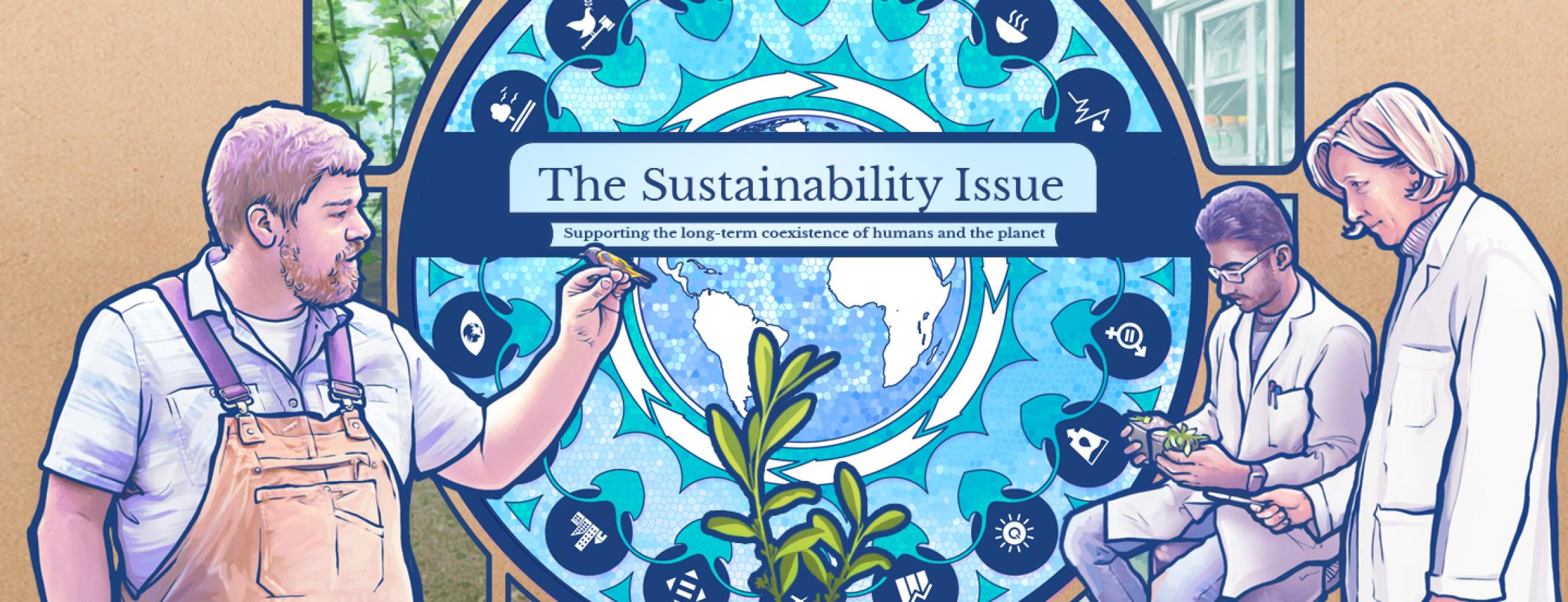
Whether determining how often to water houseplants, cleaning the calcium deposits off a shower head, or wondering just how far away that star in the night sky is from Earth, the opportunities to engage with scientific material are everywhere. Eberly alumna Jayatri Das sees this as a wonderful opportunity.
“Science learning can happen wherever somebody is because science touches so many different parts of our lives,” said Das, who works at The Franklin Institute science museum in Philadelphia, Pennsylvania. “We want to be a partner in science learning for people, wherever they are.”
As the Institute’s chief bioscientist, Das is a face of science expertise for the public and helps scientists translate emerging research into public-facing programs. Behind the scenes as the Institute’s director of science content, she also helps develop museum exhibits, public programming, community partnerships, and digital media. This unique intersection of education and outreach initiatives allows her to apply her skills in many different ways—something she first began to appreciate during her time as an undergraduate at Penn State.
“Penn State offered so many opportunities to try different things, from research to teaching to outreach,” she said. “It really encouraged me to learn how to multitask and think about my core values and think about how they can apply in many different contexts.”
Das entered Penn State with a passion for genetics and participated in research with Claire Thomas, associate professor of biology and of biochemistry and molecular biology. When not in classes or the lab, she spent time with the Biochemistry Society and even worked with a friend to bring geneticist and author of the book “The Selfish Gene” Richard Dawkins to campus. And, one summer, she worked as a camp counselor doing science education.
“Claire was very supportive of my taking a break from research to go do that,” said Das. “Looking back, it was so important to have a mentor who acknowledged and supported the diversity of my interests.”
After she graduated from Penn State with degrees in biology and in biochemistry and molecular biology in 1999, Das continued to explore her passion for science. Between earning a Ph.D. and starting postdoctoral research, she continued to mature as a science educator during a fellowship at the Koshland Science Museum of the National Academy of Sciences in Washington, D.C., where she fell in love with museums as a professional field.
“One year into my postdoc, I saw a job opening at The Franklin Institute to develop an exhibit about the brain, and they wanted someone with a background in biology,” she said. “I knew I had a lot to learn, but I applied anyway, and here I am 15 and a half years later.”
The resulting exhibit, called Your Brain, explored the neuroscience and psychology of the human brain. The exhibit went on to win the Excellence in Exhibition Award from the American Alliance of Museums, which cited its ability to successfully take a very dense subject matter and make it relatable to visitors. She then helped develop SportsZone, an exhibit connecting sports to the science of the human body, laws of motion, and technical innovations around equipment and safety, and is now working on the Institute’s new exhibits about space science and human biology.
“Exhibits are really fun because they bring together so many aspects of how we experience learning,” said Das. “It’s not just about the content, it’s about the visual design, the space, how you make people feel comfortable and playful, and how you bring people together. It’s giving people an opportunity to learn something new and sparking questions that lead them to want to continue learning after they leave.”

For Das, the learning opportunities extend far beyond the museum’s physical building. She helps the Institute develop podcasts and video series as well as find new, creative ways to partner with local organizations and to bring science into the community. With the rise of the COVID-19 pandemic in 2020, many people turned to the museum as a trusted source of information.
“At the beginning, I was doing daily Facebook live videos to synthesize the headlines that people were being bombarded with, trying to help people understand and to bring transparency to the process of science,” said Das. “As vaccines have rolled out, we have been looking at how to partner with schools and community organizations to build vaccine confidence in under-vaccinated neighborhoods in Philadelphia.”
To this end, Das and the museum have partnered with the National Nurse Led Care Consortium, developing toolkits for school nurses to do vaccine education in their communities.
“It’s a really wonderful connection that brings The Franklin Institute’s expertise and legacy into the community while recognizing the expertise and value that school nurses bring as the front lines of health care for many of the families in their schools,” she said.
Das also finds opportunities to give back to the Penn State community, giving talks about her career path and participating in outreach events. She also collaborates with the Penn State Center for Nanoscale Science and works with leadership at Discovery Space of Central Pennsylvania near the Penn State University Park campus, which she calls a “natural space for kids and families in the community to come together around science.”
“When I talk to kids and say I have a Ph.D., it can feel intimidating, but when I say I went to Penn State for college, they all loosen up,” she said. “It’s like an immediate connection because Penn State is such a big family.”
